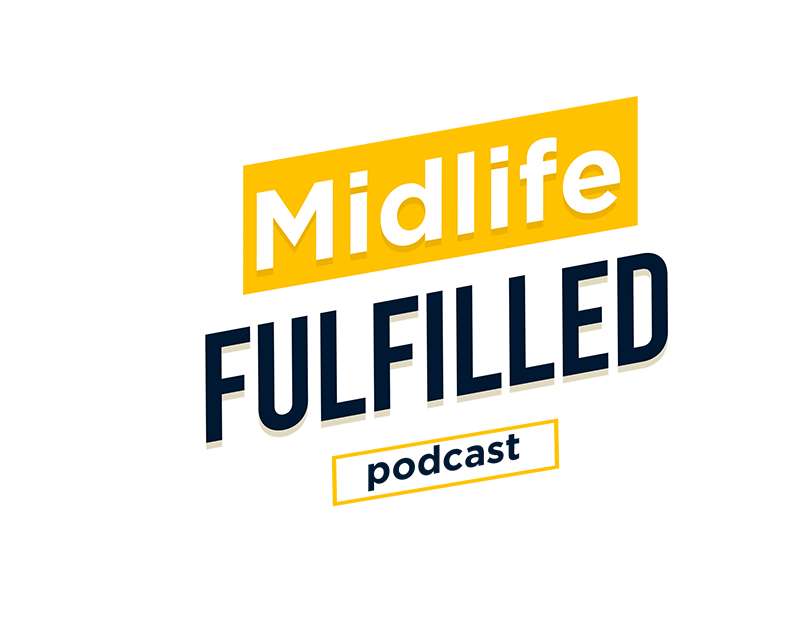I’ve always considered myself a bit of a contrarian. When it comes to midlife, the common consensus is that midlife starts at age 45. I however believe that midlife starts for most of us in our 30s due to circumstances, not due to age. Circumstances causing our midlife season to begin are unique to each of us but they can include career events, relationship events, relocation events, family events, other emotional events, etc. When it comes to midlife crisis, I have been of the opinion that it’s “all in your head,” and that a midlife crisis is not a real thing.
It appears that I’m partially right. According to one study, 26% of Americans believe they have experienced a midlife crisis but most reported having their midlife crisis before age 40 or after age 50. I’m encouraged by the relatively small percentage of Americans that report having a midlife crisis. Of course, what one person considers a crisis may not be considered a crisis by another.
As we go through what I call “midlife seasons” we start to do a lot more reflecting on our life. We think about our regrets. Daniel Pink’s best-selling book The Power of Regret How Looking Backward Moves us Forward is a recommended book to help you understand how we can use regrets as a positive enabler. Pink’s extensive research on this topic teaches us that our inaction regrets (things we regret not doing) are commonly our biggest regrets. Often, as we go through different phases we give such inaction regrets a lot more reflection, sometimes causing stress or anxiety over those regrets.
Another common stress factor for us in our midlife seasons is the challenges of being a parent while also dealing with aging parents. The stress of caring for aging parents is experienced by millions of adults in their midlife seasons. The role reversal is a shock. Once upon a time, your parents probably took care of your every need. They made you do what was best for you whether or not you wanted to. But, when we’re tasked with caring for an aging parent who is often unwilling to do what you’re asking of them even though you know what’s best for them in that moment, it’s a very stressful time.
I speak from personal experience. As an only child, I had power of attorney over my parent’s affairs and I made the difficult decision to move my parents to an assisted living facility when they were around age 90. Truthfully, I should’ve done it at least one year sooner. They were already in a state of health decline both physically and cognitively. For a while, I was in denial. I hoped their condition would improve. It didn’t. It worsened. Once they were living in an ALF, things got worse. They didn’t want to be there and they rebelled like children who don’t want to go to summer camp. The first month after relocating to the ALF my mother called my cell phone about 20 times a day asking me to come pick her up and “take her home.” I’m not exaggerating about the call frequency.
Needless to say, this season was very difficult for me. But, I never characterized it as a crisis. Call it semantics if you want. I just didn’t use the word crisis. It was the hand I was dealt and I just handled it. Was it easy? Fun? Neither. In fact, it was damn hard. They both passed away within three years of moving to an ALF. Fortunately, I had moral support from my wife and my two adult children during this season. I know that my experience is common among others in their own middle-aged season.
Sadly, suicide rates among people in midlife are a factor we need to be aware of so that we can identify warning signs and head them off before it’s too late. Suicide is the fourth leading cause of death among people aged 35 – 44 and the fifth leading cause of death among people 45 – 54. Know the warning signs of suicide and seek help from the available resources. Recently, in the U.S. the National Suicide Prevention Hotline was set up with the 988 number as a national emergency number available to anyone who is either contemplating suicide or anyone who knows someone who is.
Whether you’re coming out of a midlife crisis, going into a midlife crisis, or neither, I suggest thinking about what’s involved and how to cope with it. I suggest there are three ways to add more meaning to our midlife season by considering one, two, or all three of these actions.
Focus on close friendships.
Be generous.
Seek change.
I explain these three ideas in the State of Midlife Fulfilled 2022 report. I’m honest about them in that they are not a magic wand. Each of us has our unique circumstances. And, timing can be important when considering any of these three ideas, if at all.
Whether or not you experience a midlife crisis, be self-aware that it’s okay to admit it and deal with it through any combination of friends and family or professional assistance to cope and get through it on your terms.
My reminder to you at the end of each podcast episode is if you’re 80% fulfilled, you’re doing great!





